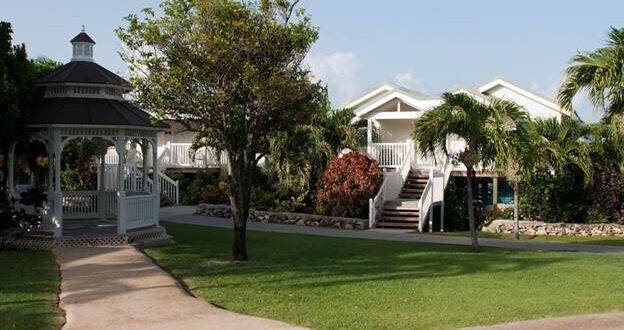Buying a vacation home in Florida is a dream for many, but turning that dream into a smart investment requires careful planning and knowledge. From choosing the right ownership structure to understanding environmental risks and maintenance needs, there are several unique factors that set Florida properties apart. Before you take the plunge into palm trees and ocean breezes, here’s what you need to know to make an informed decision.
Understanding Property Ownership Types
When considering purchasing a vacation home in Florida, it is essential to understand the different types of property ownership available. The three most common forms include sole ownership, joint tenancy, and tenancy in common. Each type offers distinct advantages and legal implications that potential buyers must consider when making their decision. Sole ownership refers to a property owned by a single individual, providing the owner complete control but full responsibility for maintenance and liabilities. According to real estate experts, joint tenancy involves two or more owners sharing equal stakes in the property, while tenancy in common allows owners to hold different percentage shares.
Joint tenancy is often favored by partners or family members since it ensures that if one owner passes away, the surviving owner(s) automatically inherit the deceased’s share. This can streamline the inheritance process and avoid potential legal complications. In contrast, tenancy in common allows for unequal ownership shares, making it suitable for buyers who plan to divide the cost or usage of a property differently. According to real estate professionals, this form of ownership provides flexibility, as each owner can sell or transfer their interest independently without needing consent from other owners.
It’s crucial to evaluate the potential benefits and drawbacks of each ownership type before making a purchase. Sole ownership may relieve the complexity of managing a property with others but comes with the burden of handling all expenses solo. On the other hand, joint tenancy can simplify assets transfers but might require careful consideration of relationships and future estate planning. As per the insights from real estate authorities, tenancy in common can appeal to investors or friends sharing a property in a dynamic setup. When buying a vacation home, understanding these ownership structures will ensure you make an informed decision.
Environmental Considerations and Water Quality
Florida offers a diverse range of environments for vacation homes, from coastal properties to those nestled near lakes and rivers. However, the state’s unique geography necessitates careful attention to environmental factors impacting property values and living conditions. One significant consideration is water quality, especially for homes relying on well water. According to the U.S. Environmental Protection Agency, properties with private wells can be more susceptible to contamination risks. It’s advisable to conduct thorough water quality assessments and ensure that proper filtration systems are in place for your peace of mind.
The quality of water isn’t only about safety but also affects property maintenance and your daily living experience. Hard water, which is common in some areas, can lead to scale buildup in plumbing and heating systems, necessitating frequent maintenance and repairs. The taste and clarity of your water can significantly influence your comfort and enjoyment of the property. Real estate experts recommend regular testing and prompt addressing of any identified issues to maintain the integrity and value of your vacation home.
Besides controlling water quality, environmental considerations extend to understanding flood risks and weather patterns in Florida. Given the state’s propensity for hurricanes and heavy rains, evaluating the flood zones and storm readiness of your potential home is vital. Homes built with storm resilience in mind are often more appealing when reselling. According to real estate guidelines, investing in preventive measures such as installing storm shutters or elevating critical home infrastructure can also be a wise decision. Ensuring that your property is equipped to handle Florida’s weather conditions can protect your investment and personal safety.
Energy Efficiency and Maintenance in Florida Homes
Energy efficiency is a crucial aspect of maintaining cost-effective operation of a Florida vacation home. Given the state’s tropical climate, homes typically rely heavily on air conditioning, making energy management systems a worthwhile investment. Installing modern, energy-efficient appliances can significantly reduce energy costs and improve your property’s market appeal. Additionally, according to the U.S. Department of Energy, maintaining water heaters at around 120ºF can optimize efficiency and safety for most households. Simple actions like insulating water tanks and switching to LED lighting can result in considerable savings over time.
Maintaining your property in Florida necessitates vigilant attention to both interior and exterior conditions. The humid climate can accelerate wear and tear, especially on wooden structures, roofs, and landscaping. Regular inspections and timely maintenance can prevent more significant issues from arising, ensuring longevity and preserving property value. According to real estate insights, seasonal checkups are essential for identifying potential concerns like mold, mildew, or insect infestations common in warm, humid environments. This proactive approach can save you costs and enhance your living experience.
Your home’s energy efficiency and maintenance also play pivotal roles when it comes to resale value in the real estate market. Buyers often seek properties that require minimal renovations and offer cost-effective living. By investing in modern, sustainable systems and diligent upkeep, your vacation home can retain its attractiveness and competitive edge in a bustling housing market. It’s also important to note that if you decide to rent the property, ensuring it is efficient and well-maintained can boost rental returns and tenant satisfaction, making it a lucrative long-term investment.
 Vents MagaZine Music and Entertainment Magazine
Vents MagaZine Music and Entertainment Magazine





